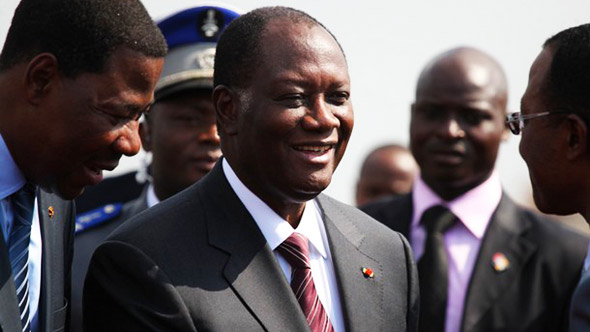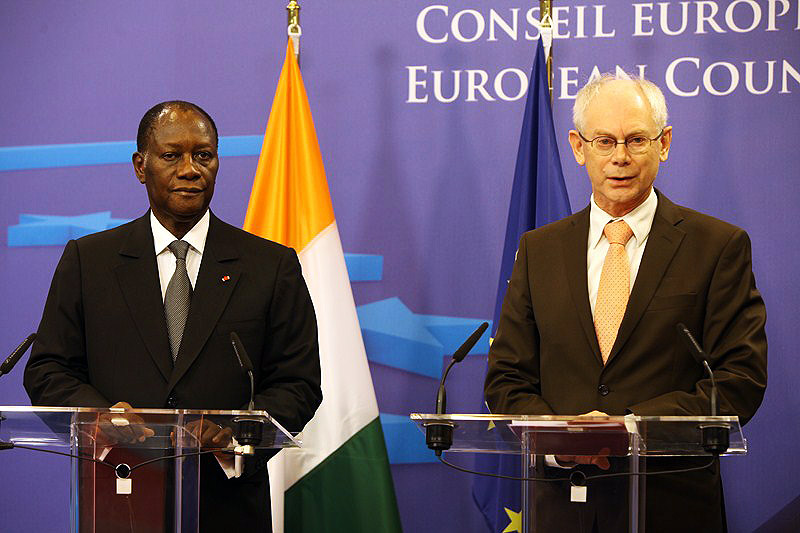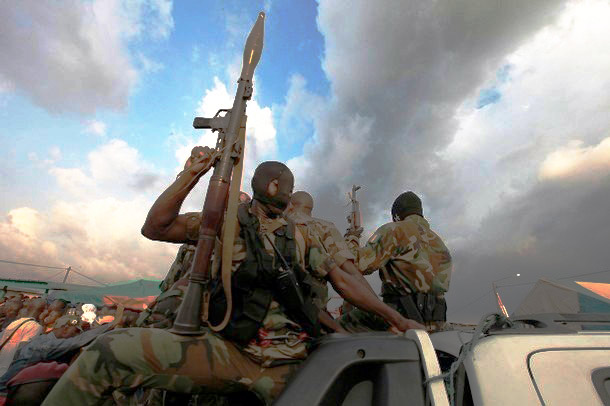The Economic and Political Situation in Ivory Coast
Although the violence of the five-month civil war is over, and the parliamentary elections proceeded relatively peacefully, there is still fear in the country.

The Current Economic and Political Situation
Although the violence of the five-month civil war is over, and the parliamentary elections proceeded relatively peacefully, there is still fear in the country.
Côte d’Ivoire is struggling to return to normalcy after the parliamentary elections held December 11. According to preliminary figures, voter turnout was approximately 35 per cent—down considerably from the 80 per cent turnout in the presidential election held in 2010.
Part of the reason for the low voter turnout is that the supporters of Laurent Gbagbo decided to boycott the election; Gbagbo had received 47 per cent of the vote in the previous year’s presidential election.
Although the violence of the five-month civil war is over, and the parliamentary elections proceeded relatively peacefully, there is still fear in the country. Many of the one million refugees who fled their homes during the fighting have not yet returned. Many speak of fear of retaliation, or simply fear of not having enough to eat. The United Nations and several international bodies have sent emergency food shipments to Côte d’Ivoire. 
Many foreign sources have promised economic assistance and aid packages, extension of loans and credits, and the resumption of previously halted development programs.
These include the United Nations, the IMF, the EU, France, and the United States. But it is unclear when much of this assistance will be received. However, as soon as the government is able to function properly, there appear to be a large supply of funds to be allocated, and programs either to initiate or restart.
How Business and Government Leaders See Côte d’Ivoire’s
(A) Recent Past…
Georges Philippe Ezalé, General Director of Sodexam, briefly summarizes the long crisis that business in Côte d’Ivoire has been through:
“The country has just come out of a long crisis…. Since 1999, the country has known incredible difficulties.” But, he says, “the hardest times for the country have passed,”  and now “the economy is looking up.” Regarding the future, Ezale is optimistic: “Within three years, we can predict that the country will explode onto the international scene.”
and now “the economy is looking up.” Regarding the future, Ezale is optimistic: “Within three years, we can predict that the country will explode onto the international scene.”
Mohamed Bourgi, Managing Director of Leader General Industry, when interviewed in October, is even more direct about how difficult the past has been—and equally as optimistic about the future as Ezale of Sodexam:
“After the post-electoral crisis, the security situation in Côte d’Ivoire was disastrous.”
During the five-month civil war he recalls:
“There were a lot of burglaries and assaults, and people were trying to survive.” But since the end of the civil war, he says things are returning to normal. Fortunately, we believe that in the next month or two the situation will settle down and then the economy should take off.

Fabrice Desgardin, CEO of CFAO Automotive, also describes the past decade-and-a-half as a huge loss of both time and investment in the development of the country, which now needs to be overcome:
“First of all, Côte d’Ivoire needs to get over the 15 years gap when there were no investments coming to the country. The only investments that happened in between 1989 – 2011 were the airport and the palace of culture. You can imagine the great loss of time [that was involved for] every plan—that now needs to be turned into reality.
”
But now that these periods of instability and civil war are over,
“one can expect an explosion of investments in the country.” This is because, “Côte d’Ivoire has numerous needs but it has also an economy; a real economy which helped the country to survive the crisis.”
My only message to any investor is: “Do not hesitate.”